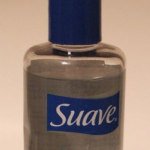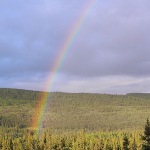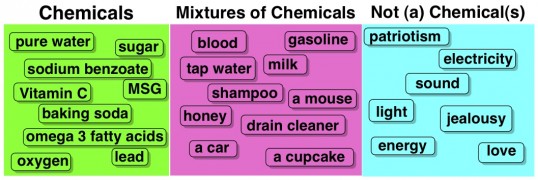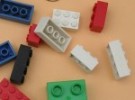This is Part 1 of a 3 ± 2 part series on navigating the language of chemicals. Please see this earlier post for an introduction.
 If you try to look up the ingredients in Suave shampoo – Google search Suave shampoo ingredients – the number one hit is a site that condemns the Suave shampoo brand, and instead directs you to read a review of their favorite “herbal shampoo.” In said review, the writer makes the following statement:
If you try to look up the ingredients in Suave shampoo – Google search Suave shampoo ingredients – the number one hit is a site that condemns the Suave shampoo brand, and instead directs you to read a review of their favorite “herbal shampoo.” In said review, the writer makes the following statement:
“I shudder to think now about how many chemicals I have previously soaked my scalp in.”
Now frankly, it’s impossible to imagine soaking your scalp in anything that’s not a chemical, unless you take extreme poetic license and cleanse your hair with daydreams or something.
The problem with statements like this is that all matter – stuff, substances, material – whatever you’d like to call it – is composed of one or more chemicals. Thus the wording of the above sentence is undesirable for a couple of reasons:
(1) It’s nonsensical – even water is a chemical.
(2) It helps perpetuate the misconception that chemicals are bad, and thus just adds to the confusion about chemistry.
What isn’t a chemical? It’s technically unfair to say that everything is a chemical. All matter is made of chemicals.
But not all is matter.
 As implied above, daydreams aren’t chemicals, because they’re not something materialthough one could argue that daydreams are the product of chemical reactions in your brain, but let’s not go there. Abstract nouns aside though, to find scientific entities that are not made of chemicals you have to start digging into physics. Energy itself isn’t a chemical. Light waves and sound waves (both forms of energy), heat, electricity, and magnetic fields aren’t chemicals. Subatomic particles – like protons, neutrons, electrons and crazy things like the Higgs boson would not traditionally be called chemicals.
As implied above, daydreams aren’t chemicals, because they’re not something materialthough one could argue that daydreams are the product of chemical reactions in your brain, but let’s not go there. Abstract nouns aside though, to find scientific entities that are not made of chemicals you have to start digging into physics. Energy itself isn’t a chemical. Light waves and sound waves (both forms of energy), heat, electricity, and magnetic fields aren’t chemicals. Subatomic particles – like protons, neutrons, electrons and crazy things like the Higgs boson would not traditionally be called chemicals.
What is a chemical? Everything else. Anything you can put in a bottle or hold in your hand, anything you can breathe or see or ingest or touch is made of chemicals. Some things are single chemicals, such as pure water or oxygen. Others are mixtures of chemicals – such as shampoos. ALL shampoos.

 Anything made of atoms can be called a chemical. Atoms are like individual Lego blocks. They are the smallest unit that anything can be broken down into without doing something crazy (like taking a blow torch to a Lego, or smashing atoms in a nuclear reactor). So if atoms are Lego blocks, chemicals are the structures you can build with them.
Anything made of atoms can be called a chemical. Atoms are like individual Lego blocks. They are the smallest unit that anything can be broken down into without doing something crazy (like taking a blow torch to a Lego, or smashing atoms in a nuclear reactor). So if atoms are Lego blocks, chemicals are the structures you can build with them.
But even what is not a chemical is naught without chemicals.
Light, sound, daydreams, etc. couldn’t exist – or at least couldn’t be observed – without chemicals. A rainbow is not a chemical per se, but we can only see it (and it only exists) because of the way light interacts with water (chemical) droplets in the air (mixture of chemicals).
In conclusion, with all due respect to chemicals, the word “chemical” should be commonplace. It shouldn’t carry nearly the power that it does, as its meaning is practically on par with “stuff”.


I wash my hair with daydreams and bathe in pure excellence
I think this has to be about the funniest comment I’ve ever read. I love snark. 🙂
This comment was amazing.
it appears the masses have chosen and it’s matt’s comment for the win! honestly, it gave me a good, unexpected chuckle.
At Catalyst science centre we do a schools workshop Up close and Personal about shower gel and shampoo. We make and take home a “body wash” which can be safely used. All the ingredients are standard industry but when the students see just how little there actually is to making a shampoo/body wash they are really surprised. And let’s not forget that most of it is “aqua”!
Have you seen the chemical formula for humans? Kinda funny:
http://wiki.answers.com/Q/What_is_the_chemical_formula_of_human_body
@Matt – Somehow I’m not surprised 😉
@Sue – That is a really cool workshop! I’m looking at your website and trying to figure out what age group this is for – is it like college age?
@An Eye for Science – Whoa. That is pretty funny and daunting. Just think how much the formula changes every time you take a sip of water.
Great post! One of the most common claims I hear on my beauty blog is that “chemicals are bad for you.” This is just nonsense and it’s exhausting to keep explaining that everything is a chemical! (except the exceptions you mentioned).
Next most popular claim is that ‘natural’ things are safer than ‘synthetic’ things. Of course, it means you have to ignore natural things like snake venom, radiation, and anthrax.
Yes, the natural=good / chemical = bad dichotomy is annoying and unhelpful. That said, I’ve found that as I get older, I am becoming increasingly sensitive to manufactured compounds (benzoyl peroxide makes my face swell, and many fragrances make me sneeze), so I find myself standing next to the “all natural” hippies in line at Vitamin Cottage buying my all natural beauty supplies. 🙂
What of chemicals taken out of context, though? The whole “natural” soybean is not frequently associated with health risks, but soy protein isolate has been cited many times. It seems to me that most of the ‘chemicals’ people react negatively to are synthesized and/or taken out of context. The whole is greater than the sum of its parts, no?
When I’m too busy, I wash my hair with shampoo memories.
As a Chemistry teacher, this is a point I have tried to make time and time, again. I LOVE this post, and I plan to bookmark it for future first days of Chem.
When I get too dirty, I wash myself with patriotic jealousy. 😉
i’m really going to spend some time going back through your articles, as i stated in another post you really have a knack of communicating this to the ‘average’ person without being condescending intentionally or unintentionally. being one of those average people, i truly appreciate it as my mind is always hungry or thirsty and ready to ingest something new and interesting! i hope you continue in this vein on this blog, c’mon, turn me into a chemist! 🙂
So arent natural things which are made obliviously through natural selection indirectly for the benefit of the thing itself better for us than artificial things made specifically by humans for humans and for a targeted, documented and understood purpose? Someone should make a shampoo which claims to contain no chemicals and package a vacuum (0 atm) sealed empty bottle and sell it. Wonder if we can pull an emperors new clothes type scheme on the masses.
Speaking for the unwashed masses and just for clarity’s sake, numbers and their byproducts are also not chemicals. Go figure.
if you want to make a kind of chemical a can tell you put lemon juice in a cup then take a chalk and put it in the cup and then wait 5 minutes and the look at the cup and you will not see the chalk. and now the another one take a cup and take 6 pencils and a ruler take the ruler put the ruler up the pencil and move it rhite an left rhite and left on each pencil then take what falls from the pencils put it in the cup then take another cup whith water take the another cup and put in the cup whith water then mix it and put a tissiu up it and put it in a warm place for 6 hours take it and look at it it will be chemical.
Omg Thank you! I learnt the basics of this during year 9 chemistry and no one else seems to have either paid attention in theirs or didn’t take it, because no one believes me when I say everything is technically chemical. Gah!
I really appreciate this post. I just recently started attending my first college course which is chemistry. Unfortunately I did not understand what made a chemical a chemical, come to find out neither did anyone else around me. Now I truly feel I can understand . Thank you for your insight. 🙂
p.s. I hope you email me so I may contact you during any difficulties through this course.